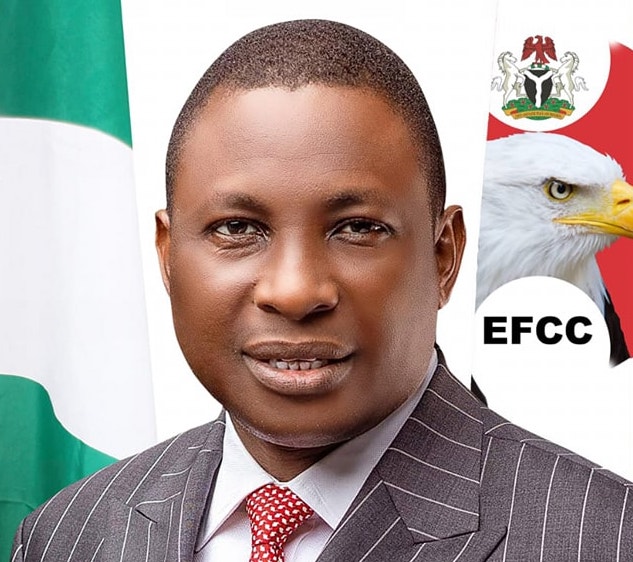The instability of Nigeria’s electricity supply has been a source of frustration for millions of citizens. Power outages, national grid collapses, and unending energy crises have been persistent issues. According to Ola Olukoyede, the Chairman of the Economic and Financial Crimes Commission (EFCC), these problems are deeply rooted in corruption, mismanagement, and inefficiency.
During a visit by the House Committee on Anti-Corruption and Financial Crimes in Abuja, Olukoyede revealed that the findings from EFCC investigations into Nigeria’s power sector are shocking. He stated bluntly that Nigerians would “shed tears” if the details were made public.
Olukoyede explained that a significant reason for Nigeria’s unstable power supply is the corruption embedded in the system. According to him, contractors frequently collect enormous sums of money for power projects but deliver substandard equipment and materials. These practices lead to constant breakdowns, tripped circuits, and national grid collapses.
“The equipment keeps failing,” he said. “Every time you hear of a grid collapse, it’s because of substandard components. These are issues caused by contractors who were paid to do the job but compromised the quality of their work.”
Such revelations expose a vicious cycle where billions of naira are poured into the power sector, yet Nigerians continue to suffer from an erratic supply of electricity.
One of the most troubling findings from the EFCC’s investigations is the poor implementation of capital projects in the power sector. Over the last 20 years, Olukoyede revealed, the sector has not achieved more than 20% of its project implementation goals.
“How can we expect development or progress if we can’t even implement 20% of what we plan?” he asked. “This is why our infrastructure is failing and why growth has been stagnant.”
The EFCC Chairman emphasized that addressing this issue requires an intentional effort to increase project implementation rates. He expressed hope that collaboration between the EFCC and the National Assembly could push the execution rate to at least 50% for capital projects, which would represent a significant step forward.
“If we achieve even 50%, we will be fine as a nation,” Olukoyede said. “But the lack of accountability in the capital budget is holding us back.”
The EFCC is grappling with an overwhelming number of cases, including many tied to the power sector. In the past year alone, the commission received over 17,000 petitions and opened investigations into more than 20,000 cases. Of these, 4,800 are new cases added since last October.
Despite these staggering numbers, the EFCC operates with a limited staff of fewer than 5,000 people. This small team is tasked with handling cases across 36 states, 774 local government areas, and over 700 Ministries, Departments, and Agencies (MDAs).
Olukoyede lamented the enormous workload, highlighting how the commission’s staff is stretched thin. “We are trying to do everything possible to handle this burden, but the numbers are overwhelming,” he said.
Olukoyede painted a grim picture of the corruption the EFCC has uncovered in the power sector. For example, contractors tasked with supplying electrical equipment often cut corners to increase their profits. Instead of using high-quality materials, such as a 9.0-gauge wire, they supply inferior alternatives like a 5.0-gauge wire. This not only leads to system failures but also puts the entire electrical infrastructure at risk.
“These are the kind of things we’re seeing,” Olukoyede explained. “It’s heartbreaking. People are suffering because of these selfish and unethical practices.”
He stressed that Nigerians have a right to know what is happening in the power sector. However, he also acknowledged that the scale of corruption uncovered during investigations might be too painful for many to hear.
The EFCC is determined to tackle the systemic corruption plaguing Nigeria’s power sector and other critical areas. Olukoyede called on the National Assembly and other stakeholders to support the commission’s efforts, emphasizing that achieving even modest improvements in project implementation would be a major victory.
“This year, our mandate is to work with relevant bodies to ensure better accountability,” he said. “We need to restore faith in the system.”
Despite the daunting challenges, Olukoyede remains hopeful that with enough support and determination, Nigeria can begin to address the root causes of its energy crisis and pave the way for a brighter future.
The revelations shared by the EFCC Chairman underscore a troubling reality: corruption has not only hindered Nigeria’s development but has also robbed millions of citizens of basic necessities like stable electricity. While the EFCC is making strides to uncover and address these issues, lasting change will require a collective effort from government officials, private contractors, and the Nigerian public.
For now, the country waits anxiously to see whether these findings will lead to tangible reforms—or if the cycle of corruption and inefficiency will continue unchecked.

